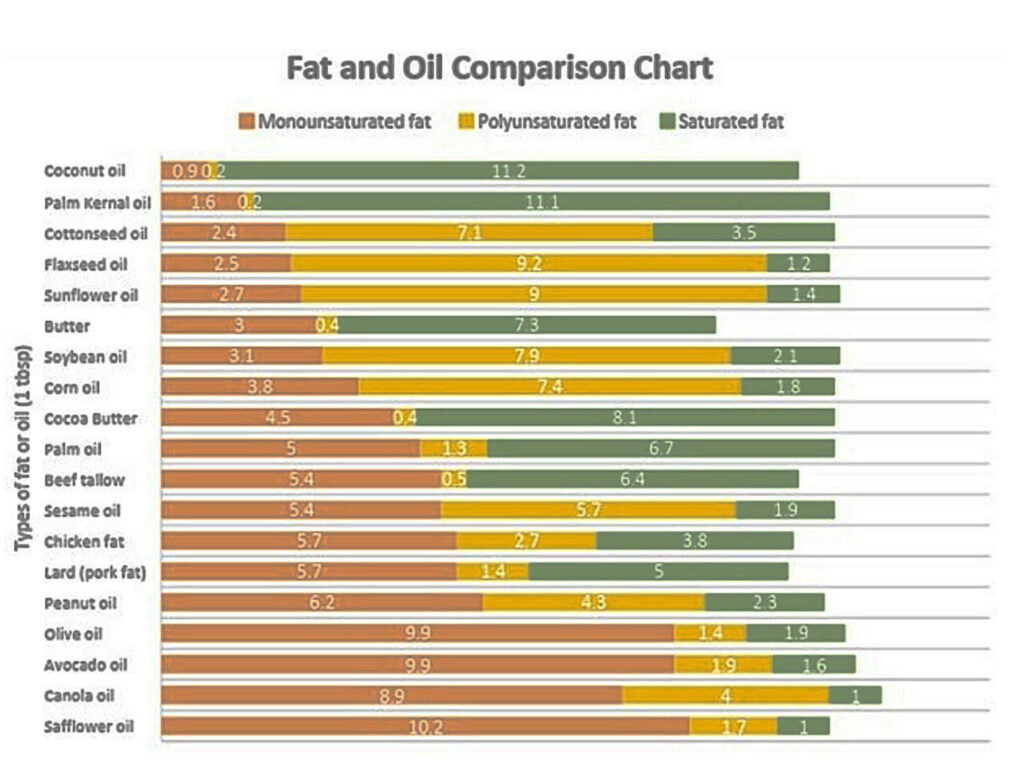The short answer to this question about people living in the Mediterranean (and who follow the Mediterranean diet) is ‘probably!’
With a temperate climate, a close proximity to nature and a culture that promotes family and other close relationships, the Mediterranean lifestyle has incredibly attractive attributes. That translates into happier lives. And we all know that happiness is healthy. The Mediterranean diet also contributes to improved health and mental-emotional wellbeing.
For over 60 years, researchers have been studying the Mediterranean diet and its association with longevity and health benefits. The foundation of this diet: whole grains, legumes, fruits, vegetables, seeds, nuts, and minimally processed oils, has been shown to reduce inflammation, regulate blood sugar and reduce oxidative stress. This translates into disease avoidance including cardiovascular disease, diabetes, neurodegenerative diseases (Parkinson’s, Dementia, Alzheimer’s) and increased mental health1. In addition, older people following the Mediterranean diet have a much more pleasant body odor.
In a 2022 systematic review of observational studies, the authors concluded that there is a protective relationship between subjects practicing the Mediterranean diet and Axis I disorders which include depression, stress and trauma disorders, bipolar, ADHD, schizophrenia and eating disorders. Of the twenty-five studies that they reviewed there was a 76% inverse relationship between the occurrence and symptom severity with Axis I disorders2.
Your mediterranean diet longevity and wellbeing grocery list
Thankfully, the Mediterranean diet is delicious and not restrictive. As stated, it emphasizes the following:
- Daily: whole grains, legumes, fruits, vegetables, seeds, nuts, and minimally processed oils, coffee, and wine
- 1-2 times per week: dairy, eggs, lean meats
- 1 time per month: red meat
The daily foods are rich in substances known as polyunsaturated fats, polyphenols and fiber.
Polyunsaturated fats
All fatty acids contain a backbone, or a string, of carbon bonds. Omega 3 and 6 fatty acids (polyunsaturated fats from walnuts, olive oil and avocados) have a double bond between one of their carbons. Their nomenclature is derived from where the double bond lies: 3 carbons from the end of the molecule and 6 carbons from the end of the molecule, respectively.
Conversely, saturated fats from cured meats, cheese and bacon have single bonds between their carbons with the addition of a hydrogen atom attached to those carbons. Omegas 3 and 6 are more beneficial due to the presence of those double bonds. Omegas 3 and 6 are liquid at room temperature while saturated fats are solid. Saturated fats raise your LDL cholesterol, bad cholesterol, which can contribute to cardiovascular disease. Polyunsaturated fats raise HDL cholesterol, or good cholesterol, and have anti-inflammatory effects on the body. These fats produce less inflammatory cells in the body, thus reducing bodily inflammation. There is a strong correlation between the activation of the immune system, its resultant inflammatory process and the incidence of depression and fatigue3.

Polyphenols
Polyphenols are responsible for counteracting the effects of our exposure to aggressive pathogens and ultraviolet radiation4. They help reduce the oxidative process and production of free radicals. In the presence of free radicals in the body, mitochondrial damage occurs and accelerates the aging process. Polyphenols consist of flavonoids, catechins, phenolic acids and lignans that are found in foods such as blueberries, strawberries, cherries and legumes. Your morning coffee, green tea and dark chocolate also fall into this category.
A recent review of studies conducted through 2022 found that there were correlations between polyphenol rich diets and a lower incidence of depression. For example, menopausal women eating a diet rich with legumes were found to have less depression5. Another meta-analysis mentioned in this same article revealed that a higher amount of daily caffeine was significant for its health benefits. Individuals whose intake was at 1.6 cups of coffee had more resistance to depression than those with lower intakes6. To receive the positive benefits of polyphenols, researchers recommend at least ten grams per serving7.
Fiber
With a recent uptick in the incidence of colon cancer, the health benefits of fiber cannot be more heavily emphasized. In the colon, soluble fiber (apples, nuts, beans, oatmeal and berries) mix with water and slow the process of digestion. These fibers create a gel-like substance that binds cholesterol and removes it from the body. According to the National Lipid Association, eating between 5 and 10 grams of soluble fiber can lower your cholesterol 5-11 points8. Additionally, since the body cannot absorb soluble fiber, it does not affect your blood sugar as readily as carbohydrates do and is therefore considered a blood sugar regulator9
There is a plethora of resources for eating a Mediterranean diet out there. One that I like is “Ikaria: Lessons on Food, Life, and Longevity from the Greek Island Where People Forget to Die” by Diane Kochilas. From her chapter entitled Knowing and Loving the Old she writes “….my paternal Aunt Mary, who taught me so much about how to be close to nature, both through the foods that we eat and the rhythms that we keep, survived several wars on two continents, family deaths and hardships….”. This book has lovely recipes, beautiful photography and little epithets. I hope this article motivates and inspires you to a healthier and happier you.
Dr. Stacey Guggino, ND, LAc graduated from the National College of Natural Medicine in Portland, Oregon with a Doctorate in Naturopathy and a Master’s degree in Oriental Medicine. For the past 12 years, she has specialized in treating pain and sports injuries with acupuncture and prolotherapy. Dr. Guggino has also studied and practiced aesthetic medicine for 11 years.
Sources
- Riveros ME, Ávila A, Schruers K, Ezquer F. Antioxidant Biomolecules and Their Potential for the Treatment of Difficult-to-Treat Depression and Conventional Treatment-Resistant Depression. Antioxidants. 2022; 11(3):540.
- Madani S, Ahmadi A, Shoaei-Jouneghani F, Moazen M, Sasani N. The relationship between the Mediterranean diet and Axis I disorders: A systematic review of observational studies. Food Sci Nutr. 2022 Jun 6;10(10):3241-3258. doi: 10.1002/fsn3.2950. PMID: 36249971; PMCID: PMC9548357.
- Lee CH, Giuliani F. The Role of Inflammation in Depression and Fatigue. Front Immunol. 2019 Jul 19;10:1696. doi: 10.3389/fimmu.2019.01696. PMID: 31379879; PMCID: PMC6658985.
- Pandey KB, Rizvi SI. Plant polyphenols as dietary antioxidants in human health and disease. Oxid Med Cell Longev. 2009 Nov-Dec;2(5):270-8. doi: 10.4161/oxim.2.5.9498. PMID: 20716914; PMCID: PMC2835915.
- Elizabeth Gamage, Rebecca Orr, Nikolaj Travica, Melissa M. Lane, Thusharika Dissanayaka, Jee Hyun Kim, Giuseppe Grosso, Justyna Godos, Wolfgang Marx. Polyphenols as novel interventions for depression: Exploring the efficacy, mechanisms of action, and implications for future researchNeuroscience & Biobehavioral Reviews,Volume 151,2023.
- G. Grosso, A. Micek, S. Castellano, A. Pajak, F. GalvanoCoffee, tea, caffeine and risk of depression: a systematic review and dose-response meta-analysis of observational studiesMol. Nutr. Food Res, 60 (1) (2016), pp. 223-234
- Williamson G. The role of polyphenols in modern nutrition. Nutr Bull. 2017 Sep;42(3):226-235. doi: 10.1111/nbu.12278. Epub 2017 Aug 15. PMID: 28983192; PMCID: PMC5601283.
- Adding Soluble Fiber to Lower Your Cholesterol, lipid.org, Clinician’s Lifestyle Modification Toolbox courtesy of the National Lipid Association, https://www.lipid.org/sites/default/files/adding_soluble_fiber_final_0.pdf
- Riccardi G, Rivellese AA. Effects of dietary fiber and carbohydrate on glucose and lipoprotein metabolism in diabetic patients. Diabetes Care. 1991 Dec;14(12):1115-25. doi: 10.2337/diacare.14.12.1115. PMID: 1663443.
Photo by Iina Luoto on pexels.com



